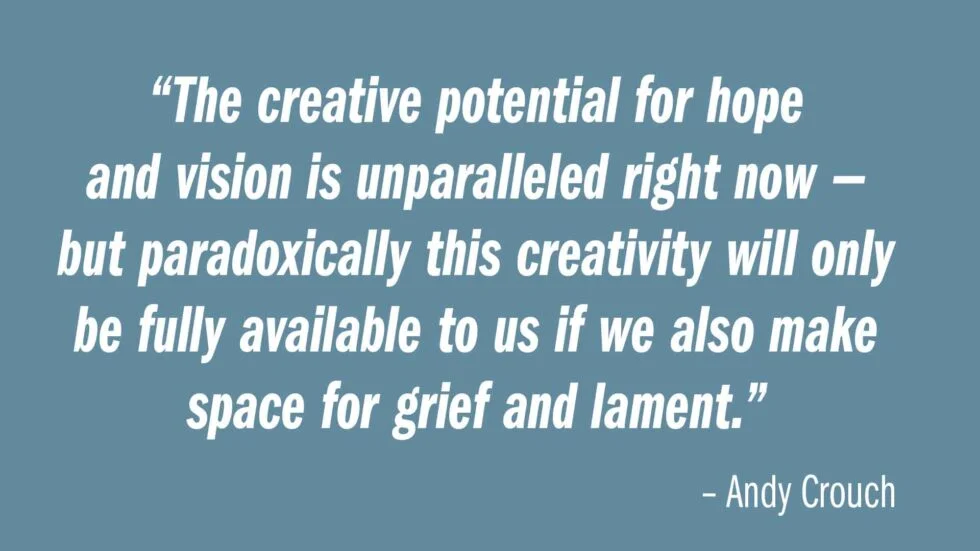I don’t know about you, but my own spiritual formation was once focused solely on hope and vision, that my value as a follower of Christ and a leader was in my ability hold onto them tightly. The people of God are a people of faith, inspiration, and problem solving. I was pointed forward to be a person of hope and optimism. While I am thankful for that, I was never apprenticed in the art of making room for grief and lament.
In the last few weeks we have been bombarded with horrific headlines, video clips, and passionate calls to innovate. We have an inner urge to join our brothers and sisters throughout history to act and make a difference. But today, we must acknowledge that God’s people also have a rich history of expressing raw honesty to Him before mobilizing.
Let’s remember that there is an entire book in our sacred scriptures called Lamentations. It is not a book locked away irrelevant in history. It too is alive and active, sharper than a two-edged sword and it can guide us in coming before God with humility, transparency and faith.
- Lamenting is not an intellectual process.
- Lamenting is not about crying or expressing emotion.
- Lamenting is an honest response to your experience.
- Lamenting is to name whatever is wrong which opens us up to grief and healing.
- True lament is anchored in God’s good and faithful character.
Jerusalem was destroyed by the Babylonians and most of the people were hauled away to exile. It is generally agreed upon that Lamentations was written by the survivors, those stumbling around the rubble of their crumbled city.
She Is the City
- The Beloved now a Widow (v. 1)
- A Queen now a Slave (v. 1)
- A Mother who has seen her children sold away from her (v. 5)
Crafting a Lament
Sit for a moment in silence and consider, “Where do I feel lost, stumbling, broken, aching, grieving, or forgotten in my life right now?” When you have identified that place, work through all five elements of lament below.
- Invocation: “I need you to ________.”
- Complaint: Name what is wrong; where you feel lost, broken, ache.
- Affirm Your Trust: “Nevertheless, you have said, I know you to be.” Here is where we turn our focus to God’s goodness and faithfulness.
- Petition: Ask for God’s intervention.
- Thanksgiving: Close with heartfelt gratitude.
“The strength of the evangelical movement is its activism; and the weakness of the evangelical movement is its activism. Our energetic history has produced genuine and needed changes in society: the progress of women’s rights, the protection of children, and antislavery legislation, among many others…but when our zealous activism is coupled with a culture of frenzy and grandiosity, the aim of our Christian life can become a list of goals, initiatives, and activities.” –Tish Harrison Warren (Liturgy of the Ordinary: Sacred Practices in Everyday Life)
For more on giving space for grief and lament without losing hope and vision, read Leading Beyond the Blizzard, by Andy Crouch, Kurt Keilhacker, and Dave Blanchard, at praxislabs.org.

